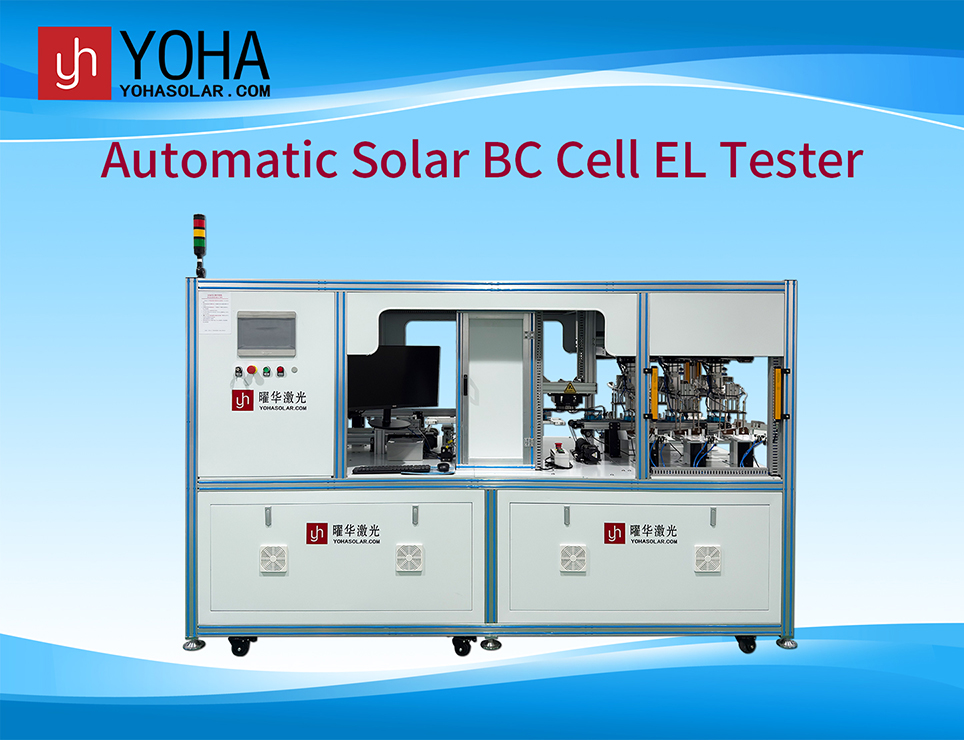Welcome to Wuhan Yoha Solar Technology Co., Ltd!
common problem
Site Map
Language:
 Chinese
Chinese
 English
English
Welcome to Wuhan Yoha Solar Technology Co., Ltd!
common problem
Site Map
Language:
 Chinese
Chinese
 English
English
Driven by the global transition from fossil fuels and the "dual carbon" goals, the photovoltaic industry is developing at an unprecedented pace. As technological iterations accelerate and market competition intensifies, the quality, efficiency, and long-term reliability of photovoltaic products have become the core keys for manufacturers to win the market. In this context, the role of photovoltaic testing equipment companies—crucial quality guardians in the industrial chain—is evolving from mere equipment suppliers to indispensable strategic partners for PV companies seeking to enhance competitiveness and achieve smart manufacturing. An excellent photovoltaic testing equipment company not only provides precision instruments but also acts as a conduit for advanced quality concepts and process optimization solutions.
Core Value of Photovoltaic Testing Equipment Companies: Comprehensive Quality Control from Raw Materials to Modules
Photovoltaic manufacturing involves a long and complex industrial chain, encompassing multiple stages from silicon materials, silicon wafers, and cells to the final PV modules. Minor defects in any single stage can be amplified in subsequent processing, ultimately affecting the module's power output, service life, and even the overall return on investment of the power plant. Therefore, professional photovoltaic testing equipment companies are committed to providing testing solutions that cover the entire process flow.
In the raw material and cell stages, testing equipment primarily focuses on the electrical properties and structural integrity of the materials. For instance, equipment like wafer sorters and resistivity testers ensure incoming materials meet process requirements. Crucially, the cell Electroluminescence (EL) tester can accurately and non-destructively detect internal cell defects such as micro-cracks, broken fingers, and sintering defects before module encapsulation, preventing defective products from flowing into subsequent processes and avoiding greater value loss. This demonstrates the preemptive value of photovoltaic testing equipment companies in cost control.

In the module manufacturing stage, testing requirements become more diverse and stringent. Beyond in-line EL testing equipment used to monitor the impact of key processes (like lamination) on the cells, this includes IV curve testers for precisely measuring the module's maximum power, open-circuit voltage, short-circuit current and other electrical parameters; insulation withstand voltage testers ensuring product safety performance; and environmental aging test equipment simulating extreme natural conditions like wind, snow, damp heat to verify the long-term durability and reliability of the modules. A comprehensive photovoltaic testing equipment company must possess the capability to provide this integrated quality verification system.
Beyond Equipment: Key Traits of an Excellent Photovoltaic Testing Equipment Company
Among the numerous market participants, how can one identify a photovoltaic testing equipment company with long-term partnership value? Its value often extends beyond the equipment itself, manifesting in deeper dimensions.
Profound R&D and Innovation Capability is the primary trait. PV technology evolves rapidly—from PERC to TOPCon, HJT, and further to BC cells and Perovskites. Each new technology poses new challenges for testing equipment. A top-tier photovoltaic testing equipment company must maintain high R&D investment to ensure its equipment can adapt to new cell structures, larger wafer sizes, and higher precision detection requirements. For example, detecting ultra-fine grid lines and minute micro-cracks necessitates developing higher-resolution imaging systems and more intelligent algorithms.
Technology Integration and Automation Solution Capability is crucial. Modern PV factories pursue intelligent, unmanned production. Therefore, photovoltaic testing equipment companies must not only provide standalone machines but also possess the ability to seamlessly integrate testing equipment into the customer's automated production lines. This includes designing suitable mechanical interfaces, stable communication protocols, and data interfacing with MES systems, enabling real-time upload, analysis, and feedback of test data, thereby forming a closed loop for process optimization and truly empowering the customer's smart manufacturing.
Precise Localized Service and Technical Support are essential guarantees for ensuring customers' worry-free operation. Precision testing equipment requires professional installation, debugging, calibration, and maintenance. A responsible photovoltaic testing equipment company will establish a complete pre-sales, sales, and after-sales service system, providing timely technical training, rapid on-site response, and continuous software upgrade services. This deep service capability minimizes customer production downtime and ensures the continuity and stability of quality control.
Future Trends: Leading New Directions in PV Testing Technology
Looking ahead, leading photovoltaic testing equipment companies are spearheading the following key trends:
Deep Application of AI and Big Data: Leveraging artificial intelligence and machine learning algorithms to intelligently analyze massive amounts of test images and data, enabling automatic identification, classification, and grading of defect types, and even predicting process deviations—moving from "detection" to "prediction," providing data-driven decision support for process optimization.
Multi-Technology Fusion Testing: Combining EL testing with PL testing, visual inspection, infrared thermography, and other technologies to simultaneously collect and correlatively analyze multi-dimensional information—such as module defects, efficiency distribution, and hot spot effects—in a single piece of equipment, providing a more comprehensive and in-depth quality assessment report.
Pursuit of Higher Efficiency and Lower Cost: As production capacities scale up, testing cycle times need to continuously accelerate to match production line speeds. Photovoltaic testing equipment companies persistently work to increase equipment throughput through hardware innovation and algorithm optimization, while simultaneously striving to reduce the comprehensive cost of ownership through technological means, creating greater value for customers.
Conclusion
In the new phase where the photovoltaic industry is moving towards grid parity and high-quality development, quality is the eternal theme. Professional photovoltaic testing equipment companies are the cornerstone for building the quality edifice of PV products and the unsung heroes driving industrial technological progress and quality upgrades. Choosing to partner with a photovoltaic testing equipment company possessing profound technical expertise, innovative capability, and a service-oriented spirit means securing a solid insurance policy for a company's product quality, brand reputation, and long-term profitability. As technology continues to evolve, photovoltaic testing equipment companies will persist in safeguarding the steady development of the global PV industry with their precise, reliable, and intelligent solutions, jointly illuminating the future of green energy.
keywords:TOP
18086473422
MESSAGE
